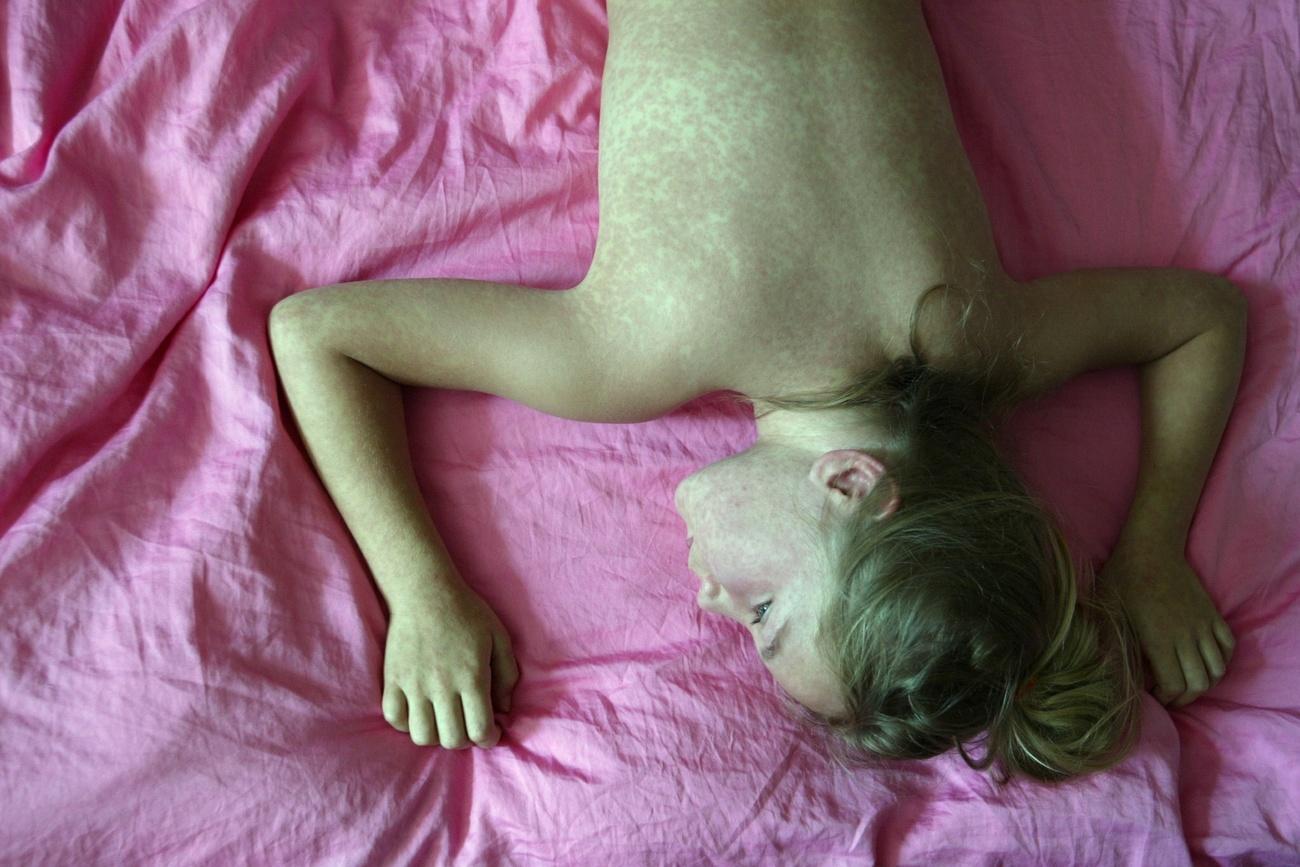
Network of nursery schools now rejecting unvaccinated children

In a first for Switzerland, a childcare group has decided to turn down applicants not vaccinated against measles and whooping cough. The step is perfectly legal, authorities say.
The “Bubble Bees” organisation, which operates eight nurseries (“Kita”, in German) across north-eastern Switzerland, instated the clear rules in order to respond to “growing requests by parents of unvaccinated children”, the SonntagsZeitung reportsExternal link.
Essentially, they request that proof be shown that all children are vaccinated against measles and whooping cough; when the parents cannot or will not show this, a meeting is arranged along with a paediatrician to try to convince them. If this is unsuccessful, the child is rejected.
Bubble Bees staff members must also be vaccinated.
According to Kibesuisse, the union of nurseries in Switzerland, this is the first case of such an obligatory vaccination being taken in the country. However, it expects to see more, especially since figures show 200 new measles cases detected in Switzerland in 2019 – already four times more than in all of 2018.
Lack of awareness
Jan Cahlik of the Swiss children’s doctors association told the SonntagsZeitung that problems and disputes do not always arise due to anti-vaxxer attitudes.
Parents underestimate the risk of measles in general, he said. In the last decade, the disease has been so successfully tackled that people have become complacent: “for example, some forget the second vaccination for their child, while others don’t realise it’s necessary”.
For the Federal Office for Public Health (FOPH), the decision by Bubble Bees is legal, since such nurseries are mostly privately-operated, as opposed to public-run playschools and schools.
It nevertheless welcomes the open debate that may arise around the issue, as it will “make other nurseries check how high the risk of infection in their institutions is”.
More than 10 other European countries have gone further, introducing general obligations for vaccination, punishable by fines if not followed. France introduced such a system in 2018, while in Germany, a regulation foresees fines of up to €2,500 – and expulsion from nursery – for unvaccinated cases.’
No such national regulation is currently on the table in Switzerland.

More
How serious is Switzerland’s measles situation?

In compliance with the JTI standards
More: SWI swissinfo.ch certified by the Journalism Trust Initiative
















![The four-metre-long painting "Sonntag der Bergbauern" [Sunday of the Mountain Farmers, 1923-24/26] had to be removed by a crane from the German Chancellery in Berlin for the exhibition in Bern.](https://www.swissinfo.ch/content/wp-content/uploads/sites/13/2025/12/01_Pressebild_KirchnerxKirchner.jpg?ver=bb19e376)














You can find an overview of ongoing debates with our journalists here . Please join us!
If you want to start a conversation about a topic raised in this article or want to report factual errors, email us at english@swissinfo.ch.